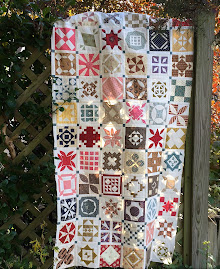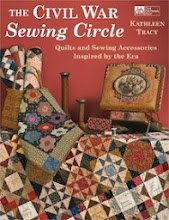February is American Heart Health Month. Both of my parents died from heart disease too early in life and I do what I can to try to reduce my own risk. I try to change the risk factors I'm able to change and I also try to instill healthy eating habits in my family. I think that's why I surround myself with hearts--to remind myself.

Breakfast is THE most important meal of the day, at least that's what I've been hearing for years and I'm famous for nagging my family about it. I never allowed my kids to eat sugary cereals for breakfast while they were young and if we occasionally had any of it in the house they ate it for dessert or as a snack. A silly Christmas tradition we had was to wrap up a box of Christmas Cap'n Crunch and give it to my son so he could go nuts with it over winter break, while he was home from school, LOL. Trust me, I wasn't a complete green meany--they ate enough sugar at other times without overdosing on it at breakfast too. I remember my son's 3rd grade teacher telling me that she could tell which kids ate what for breakfast. She said that by 10:00 every morning 1/2 the class was climbing the walls, so she did a quick survey and asked the kids what they ate for breakfast. Yup, sugary cereals. I'm a believer.
Adults who eat a healthy breakfast instead of skipping it are more likely to maintain a healthy weight and have better overall glucose levels. I have to admit, I'm a coffee junkie in the mornings (but no sugar) and sometimes I don't get around to eating breakfast until later because the coffee fills me up and I just get busy. I know, I know--I should know better. Sometimes I exercise and I hate to do it on a full stomach. On the days I skip breakfast (oh no! Don't tell my kids!), I know I tend to overeat later in the day, so, while I was writing this, I promised myself I'm going to do better. Breakfast every day, like I tell my kids. Maybe it will help me lose weight.
Well, at our house, we get tired of the same old, same old breakfasts. My daughter doesn't often have time for anything elaborate in the morning and I'll admit, even though I'm a pretty good cook, I have a hard time being creative with meals while we're rushing around at 7:00 a.m.
We used to love oatmeal but that was gettting so boring--UNTIL my daughter recently asked me if I could make her the apple crisp kind of oatmeal without the apples, just the crispy topping. Now, I make a mean Apple Crisp, but that's a dessert item in my repertoire and when my kids were little I would sometimes let them eat the leftovers for breakfast, without the ice cream. This morning there weren't any leftovers, so I said Hmmm . . . and came up with a great recipe for a very quick CRISPY BAKED OATMEAL I think you'll love. Betty Crocker, look out. I made it in the microwave and then put it in the toaster oven to CRISP up. Here are the approximate directions for one serving. Keep in mind--I'm a quilt designer, not a recipe czar:
Mix 1/4 cup dry oatmeal with a dash of salt and about 3 or 4 tablespoons of water to moisten in a microwaveable bowl. Use your prettiest measuring spoons and measuring cups.
Microwave on high for 1 minute. You don't have to fully cook it. It tastes better if the oats are sort of raw and not soggy so they crunch up nicely.
Sprinkle a little cinnamon and brown sugar into half-cooked oatmeal; stir. Place mixture into a greased small, individual size glass baking dish (those white corningware things work well). Drizzle a little melted butter over the oatmeal so it browns. Bake oatmeal on high or broil for 5-6 minutes until crispy. I like to time it with this cute little teapot timer.

Plain or topped with yogurt?
My street this morning; another 6 inches predicted.
Nothing compared to some.
1. Oatmeal may help lower cholesterol and reduce the risk of heart disease. The soluble fiber in oats helps remove LDL or "bad" cholesterol.
2. The soluble fiber in oatmeal makes you feel full longer, so oatmeal can help you control your weight.
3. Research suggests that eating oatmeal may reduce the risk for type 2 diabetes. The soluble fiber helps to control blood glucose levels.
4. Recent studies show that a diet that includes oatmeal may help reduce high blood pressure, due to the increase in soluble fiber in oatmeal. Oats contain more soluble fiber than whole wheat, rice or corn.
5. Oatmeal contains a wide array of vitamins, minerals and antioxidants and is a good source of protein, complex carbohydrates and iron.
So, sorry if this sounded like a lecture, but I need to remind myself to keep eating my oatmeal. Maybe my heart will thank me one day.





































































